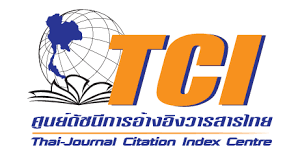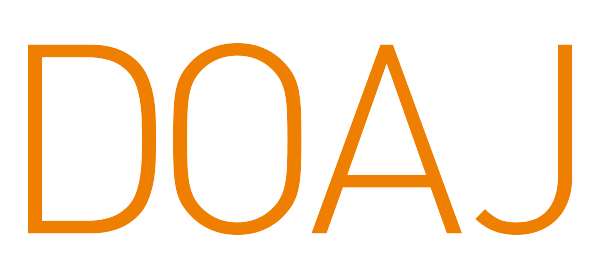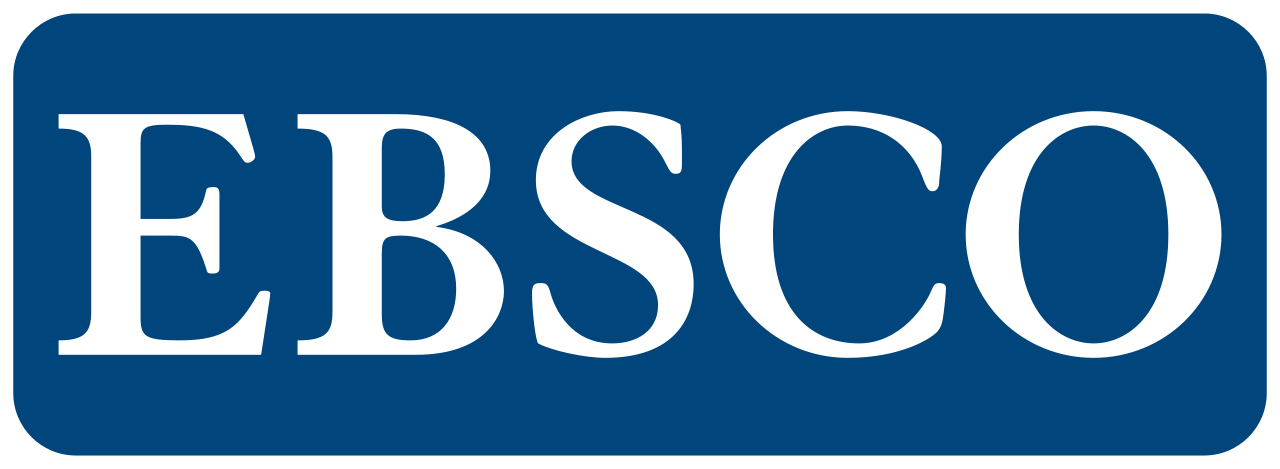Information For Authors
Interested in submitting to this journal? We recommend that you review the About the Journal page for the journal's section policies, as well as the Author Guidelines. Authors need to register with the journal prior to submitting or, if already registered, can simply log in and begin the five-step process. There is "no charge" for any sign-up, registration, submission and publication in our Engineering Access journal. The fully "double blind peer review process" and "plagiarism checking" via the online system will be performed.
Publication Fee
Authors are notified of the publication fee of either 3,500 THB or 110 USD upon acceptance of their manuscript for publication in Engineering Access. The fee is charged at the time of acceptance.
Publication Ethics
Engineering Access (EngAccess) aims to ensure that ethical standards are maintained by journal editors, authors and reviewers. Any kind of unethical behavior is unacceptable. Editors and reviewers must assess manuscripts fairly and maintain confidentiality. Authors must ensure that submitted manuscripts are the original work and are not under consideration or accepted for publication elsewhere.
The guidelines on ethical behavior for the editors, reviewers, and authors follow the COPE Code of Conduct and Best Practice Guidelines for Journal Editors and the Code of Conduct for Journal Publishers as elaborated below:
Responsibility of Editors
Fair consideration and editorial independence
Editors must evaluate submitted manuscripts on the basis of their academic quality and its relevance to the scope of the journal. Editors should make fair and unbiased decisions. The editor-in-chief maintains full authority over the entire editorial process of the journal.
Confidentiality
Editors and editorial staff will not disclose any information about a submitted manuscript to anyone other than the corresponding author, reviewers, other editorial advisers, and the publisher.
Disclosure and conflicts of interest
Editors and editorial staff must not use unpublished information disclosed in a submitted manuscript for their own research purposes and benefits without the authors’ written consent. Information or ideas obtained by editors as a result of handling the manuscript will be kept confidential and not used for their personal advantage or benefits. Editors must recuse themselves from considering manuscripts in which they have conflicts of interest. Editors must ask another member of the editorial board to consider the manuscript.
Publication decisions
The editors ensure that all submitted manuscripts for publication are considered under appropriate and confidential peer-review processes. The editor-in-chief is responsible for deciding which manuscripts will be published, based on the academic validation of the work, the reviewers’ comments, and legal requirements, including libel, copyright infringements and plagiarism. The editor-in-chief may consult with other editors or reviewers to make a decision.
Responsibility of Reviewers
Contribution to editorial decisions
Peer reviewers have an obligation to perform a fair and thorough review and to assist editors in making editorial decisions.
Promptness
Any invited reviewer who feels unqualified to review the submitted manuscript should immediately decline the invitation to review. Thus, alternative reviewers can be contacted.
Confidentiality
Any manuscript received for review are confidential documents and must not be shown to or discussed with others who are not involved in the editorial process.
Standards of objectivity
Reviews should be conducted objectively. Requests for improvements should be accompanied with supporting arguments, as needed. Therefore, authors can use reviews to improve the manuscript. Personal criticism of the authors is not appropriate.
Acknowledgement of sources
Reviewers should identify relevant published work or any statement reported in previous publications that has not been cited by the authors. A reviewer should notify the editors of any substantial similarity or overlap between the submitted manuscript and any other published or unpublished manuscript of which they have personal knowledge.
Disclosure and conflicts of interest
Any invited referee who has conflicts of interest with any of the authors, organization, and/or any work connected to the manuscript should immediately inform the editors to declare their conflicts of interest and decline the invitation to review. Thus, alternative reviewers can be contacted.
Unpublished material disclosed in a submitted manuscript must not be used in a reviewer’s own research without the authors’ written consent. Information or ideas obtained through peer review must be kept confidential and not used for the reviewer’s personal benefits. This also applies to invited reviewers who decline the review invitation.
Responsibility of Authors
Reporting standards
Authors should submit papers only on work that has been conducted in an ethical and responsible manner and that complies with all relevant legislation. Authors of original manuscript should present accurate, objective and comprehensive academic and scientific information. A paper should contain sufficient detail and references to permit others to replicate the work. Fraudulent or inaccurate statements constitute unethical behavior and are unacceptable.
Data access and retention
Authors may be asked to provide the raw data of their study together with the submitted manuscript for editorial review. Authors should prepare to make the data publicly available if necessary. In any event, authors should ensure accessibility of such data to other competent professionals for at least 10 years after publication via an institutional or subject-based data repository or other data center, provided that the confidentiality of the participants can be protected and legal rights concerning data do not preclude their release.
Originality and plagiarism
Authors should ensure the originality of their work and manuscript. If they have used the work and/or words of others, appropriate citations are required. Plagiarism in all its forms is unacceptable.
Multiple, duplicate, redundant or concurrent submission/publication
Papers describing the same research should not be published in more than one journal or primary publication. Authors must not submit a manuscript for consideration that has already been considered or published in another journal.
The publication of some kinds of articles (such as clinical guidelines, translations) in more than one journal is sometimes justifiable. The primary reference must be cited in the secondary publication.
Authorship of the manuscript
Only persons who meet the following authorship criteria should be listed as authors in the manuscript:
- Made significant contributions to the conception, design, execution, data acquisition, or analysis/interpretation of the study,
- Drafted the manuscript or revised it critically for important academic content,
- Have approved the final version of the paper and agreed to its submission for publication.
Any persons with substantial contributions to the work, including the preparation of the manuscript, technical support, writing and editing assistance, or general support, but do not meet the authorship criteria, must not be listed as an author. Instead, these individuals may be acknowledged at the end of the manuscript under “Acknowledgements.” The corresponding author should ensure that all appropriate co-authors and no inappropriate co-authors are included in the author list. Furthermore, the corresponding author must verify that all co-authors have seen and approved the final version of the manuscript and agreed to its submission for publication.
Disclosure and conflicts of interest
Authors must disclose any conflicts of interest that might influence the results or their interpretation in the manuscript at the earliest stage. Examples of potential conflicts of interest that should be disclosed are financial ones as well as non-financial ones. All sources of financial support for the work must be disclosed.
Acknowledgement of sources
Authors should ensure that they have properly acknowledged the work of others and should also cite publications that have been influential in determining the nature of the reported work. Information obtained privately (from conversation, correspondence or discussion with third parties) must not be used or reported without explicit, written permission from the source. Authors should not use information obtained in the course of providing confidential services, such as refereeing manuscripts or grant applications, unless they have obtained the explicit written permission of the author(s) of the work involved in these services.
Hazards and human or animal subjects
If the work involves chemicals, procedures or equipment that have any unusual hazards, the authors must clearly identify these in the manuscript. If the work involves the use of animals or human participants, the authors should ensure that all procedures were performed in compliance with relevant laws and institutional guidelines and that the appropriate institutional committee(s) has approved them; the manuscript should contain a statement to this effect. Authors should also include a statement in the manuscript that informed consent was obtained for experimentation with human participants. The privacy rights of human participants must always be observed.
Peer review
Authors are obliged to participate in the peer review process and cooperate fully by responding promptly to editors’ requests for raw data, clarifications, proof of ethics approval, patient consents, and copyright permissions. In the case of a first decision of "revisions necessary," authors should respond to the reviewers’ comments systematically, point by point, and in a timely manner, revising and re-submitting their manuscript to the journal by the deadline given.
Fundamental errors in published works
When authors discover significant errors or inaccuracies in their own published work, it is their obligation to promptly notify the journal’s editors or publisher and cooperate with them to either correct the paper in the form of an erratum or to retract the paper. If the editors or publisher learns from a third party that a published work contains a significant error or inaccuracy, then it is the authors’ obligation to promptly correct or retract the paper or provide evidence to the journal editors of the correctness of the paper.
Responsibility of the Publisher
Handling of unethical publishing behavior
In cases of alleged or proven scientific misconduct, fraudulent publication or plagiarism, the publisher and the editors will take all appropriate measures to clarify the situation and to amend the article in question. The publisher and the editors take reasonable steps to identify and prevent the publication of papers where research misconduct has occurred, and under no circumstances encourage such misconduct or knowingly allow such misconduct to take place.
Access to journal content
The publisher is committed to the permanent availability and preservation of scholarly research and ensures accessibility by partnering with organizations and maintaining our own digital archive.








